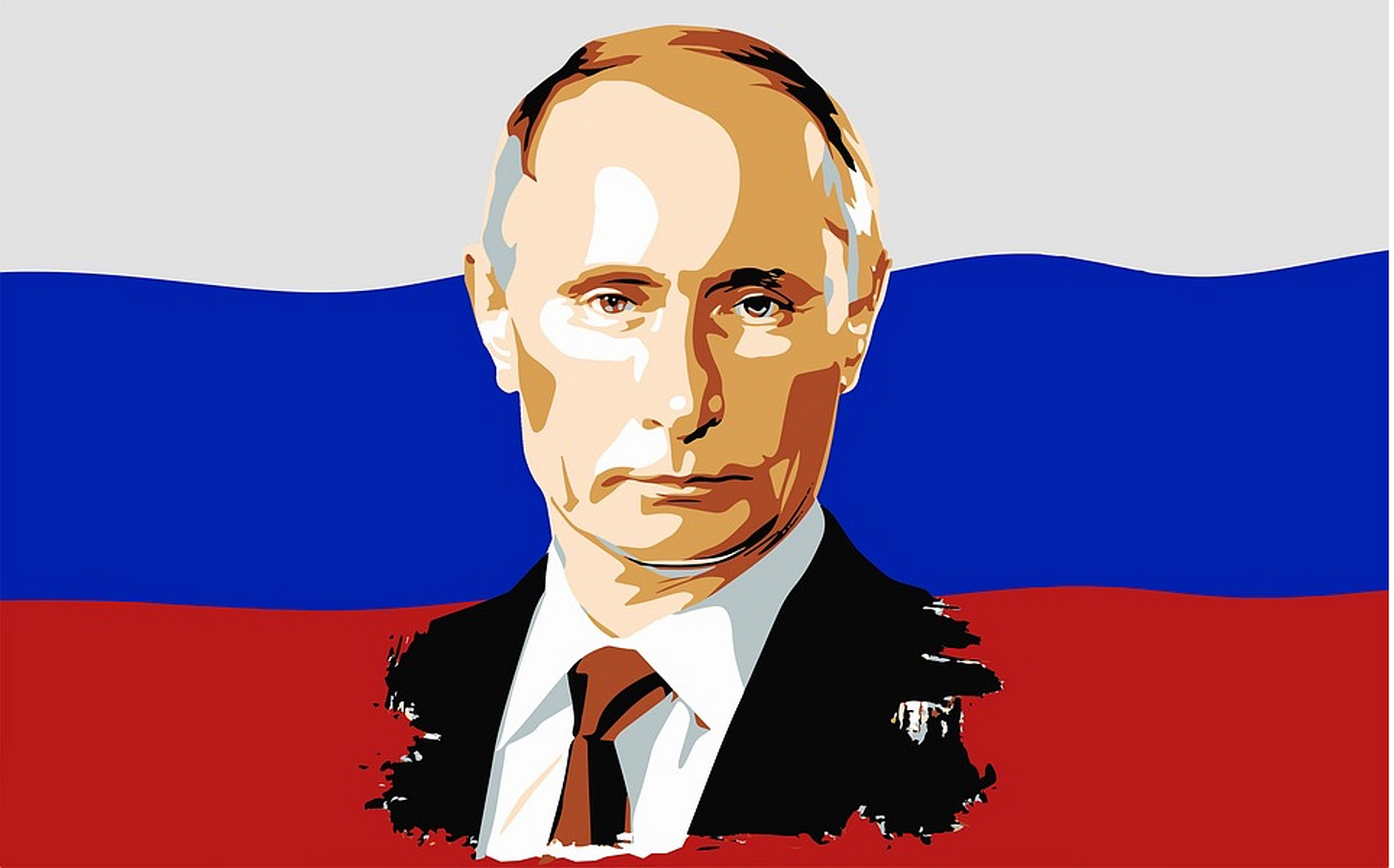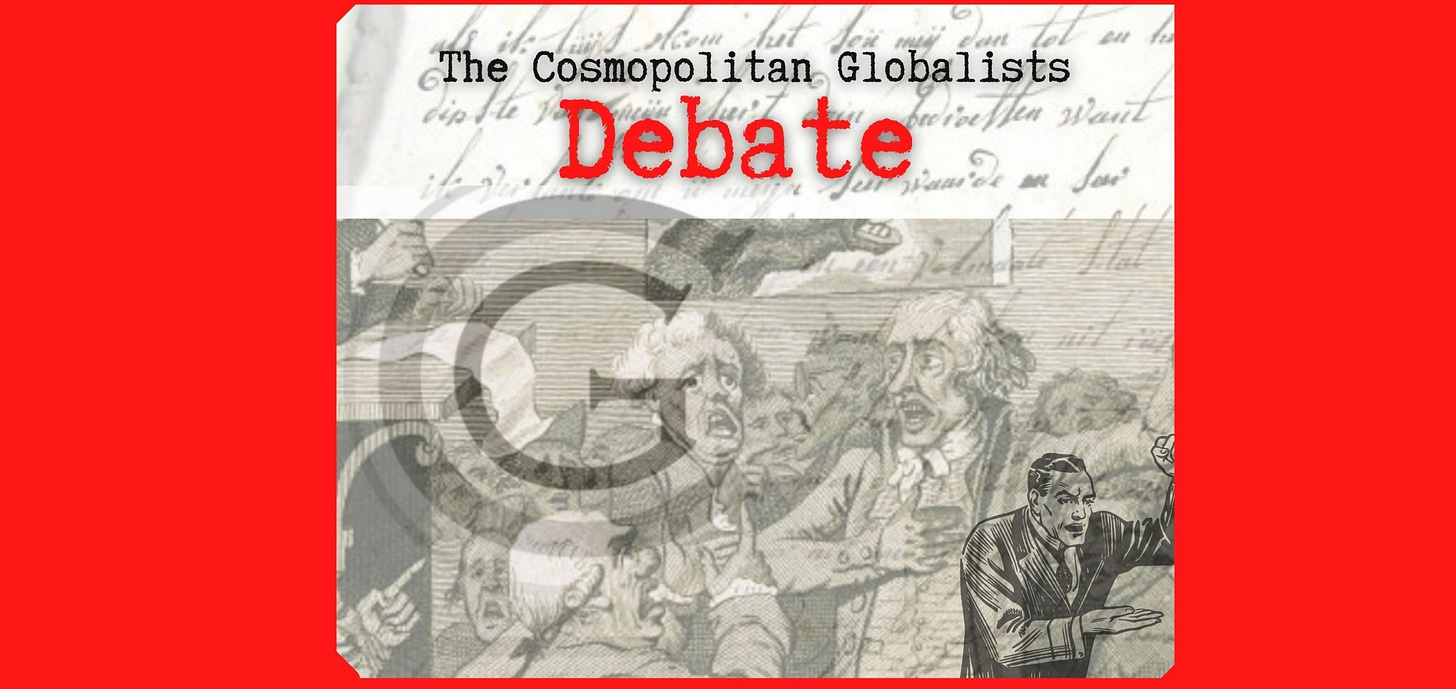
From Claire—Today at the Cosmopolitan Globalist we have a fascinating and important essay by Nicolas Tenzer about the ideology that animates Vladimir Putin: What does Vladimir Putin want?
He asks and answers a question that has been on my mind: Why doesn’t the West take Putin’s Russia as seriously, as a threat, as it took the Soviet Union?
When I ask this question, I’m often told that the Soviet Union was “an existential threat,” but contemporary Russia is just “a country whose economy is the same size as Italy’s.”
I can’t make sense of this answer. It’s true that Russia’s economy is about the size of Italy’s. People who say this may not realize that Italy is one of the wealthiest countries in the world. But why does that matter? When assessing the gravity of a threat, these are the relevant questions: Is this country hostile? Is it capable of acting on its hostility? Is it acting upon its hostility?
Russia is no less hostile to the West than the Soviet Union was. (Readers of the Cosmopolitan Globalist who doubted this have, perhaps, changed their minds after closely studying the Russian media.) Is Russia capable of acting on this hostility? Yes. Its military is the second most powerful in the world, certainly no less capable of massive destruction than the Soviet military in the era of Khrushchev or Brezhnev.
Is Russia acting upon this hostility? Of course it is. There’s no need to list all the acts of aggression again. Putin has shattered Europe’s postwar security order and breached almost every existing international agreement. He has openly threatened the West with a nuclear first strike. Now, thirty years after the collapse of the Soviet Union, Russian troops are massed on the borders of a partially-occupied Ukraine, and Putin has delivered an an explicit ultimatum to the West. As Russia’s deputy Foreign Minister Alexander Grushko put it,
Europeans must think about whether they want to avoid making their continent the scene of a military confrontation. They have a choice. Either they take seriously what is put on the table, or they face a military-technical alternative.
So why do so many doubt that Russia poses as much of a threat—or more—as the Soviet Union did during the Cold War?
We won’t have a full picture of what’s happening now for many decades. But when at last the archives are open, I suspect we’ll learn that the risk of a wider European war, or a nuclear exchange, is as great now as it was during the Cuban missile crisis.
Yet few seem particularly alarmed. A friend of the Cosmopolitan Globalist sent us this article with the words, “This would have been a panic in 1983. The headline, the crisis, the threats, everything. Now no one even notices.”
He’s right. The crisis seems to be at the periphery of attention, at best:
It’s hard to explain this insouciance. It probably has many causes: The fragmentation of our media environment. The multiplication of global tensions and catastrophes—above all, the pandemic. Perhaps there’s a sense that this sort of crisis has always been a false alarm in the past, so why worry about it now? Or perhaps the story of winning the Cold War has been so powerful, in our collective psyche, that it’s difficult to consider new information.
Nicolas Tenzer’s answer may be part of the explanation. He argues that we’ve failed to understand Putinism as an ideology, and this—more than cowardice, avarice, compromise, corruption, or simple idiocy—explains why we have failed to respond to the threat with appropriate alarm and resolve.
This seems plausible to me. Throughout the Cold War, it was widely understood that communism, as an ideology, was a serious competitor to liberal democracy. Western statesmen, and ordinary citizens in Western countries, correctly appreciated that communism was an intellectual competitor, in that the ideology purported to explain the world—its history and trajectory—more accurately than liberal democracy; it was a moral competitor, in that it purported to be a superior solution to eternal human problems; and it was a power competitor, in that states such as the Soviet Union and China advanced their national interests under the banner of this ideology. Every American who grew up during the Cold War understood that our system of governance had a rival. We took this rival seriously. We were uneasily aware that liberal democracy could lose to it, and we struggled to ensure it would not.
Putinism, too, is a deadly serious competitor. But unlike communism, it’s not widely understood to be an ideology at all, no less a deadly one. The failure to see that something—a real ideology—animates Putin’s Russia is a blind spot the size of a supernova. Even though Putin has in many ways been more successful in advancing Russian interests through the vehicle of this ideology than his communist forebears, we refuse to see it for what it is.
What is is it, then?
Read Nicolas Tenzer’s essay to find out.
Be it resolved …
Because this is such a rich and interesting thesis, we’ve opened a dedicated discussion session to debate it. Join us here:
Resolved: Understanding Putinism as an ideology is essential to understanding Russia’s regime.
We’re eager to know what you think. Does ideology matter? Does Putin have one? Has Nicolas correctly identified it? Has he missed any element of it? How much explanatory power do you think his thesis offers? Do you disagree with it? If so, why? Is he correct that our failure to recognize this ideology is the cause of our failure to confront this threat appropriately?
If you’d like to join the debate, please subscribe.







